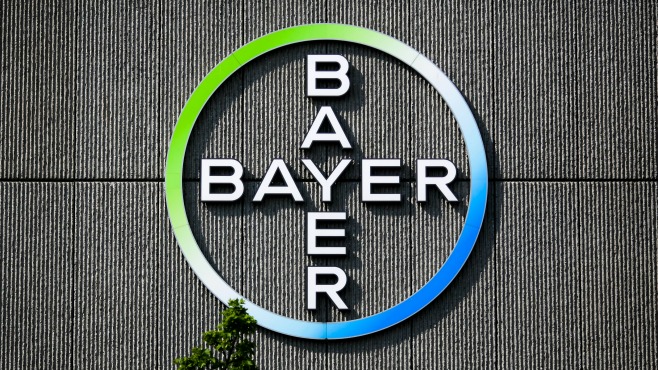-
Tips for becoming a good boxer - November 6, 2020
-
7 expert tips for making your hens night a memorable one - November 6, 2020
-
5 reasons to host your Christmas party on a cruise boat - November 6, 2020
-
What to do when you’re charged with a crime - November 6, 2020
-
Should you get one or multiple dogs? Here’s all you need to know - November 3, 2020
-
A Guide: How to Build Your Very Own Magic Mirror - February 14, 2019
-
Our Top Inspirational Baseball Stars - November 24, 2018
-
Five Tech Tools That Will Help You Turn Your Blog into a Business - November 24, 2018
-
How to Indulge on Vacation without Expanding Your Waist - November 9, 2018
-
5 Strategies for Businesses to Appeal to Today’s Increasingly Mobile-Crazed Customers - November 9, 2018
Bayer buying Monsanto for $66 billion
The deal values Monsanto at nearly 21 times earnings before interest, taxes, depreciation and amortization, according to data compiled by Bloomberg. If all these deals close, three companies would control almost 70 percent of the world’s pesticide market and 80 percent of the US corn-seed market. The buyout would have to have the approval of anti-trust regulators in 30 jurisdictions, but Bayer doesn’t seem too anxious, saying feedback from politicians and regulators has been encouraging.
Advertisement
Monsanto shareholders still have to approve the deal, as do regulators – with Bayer staking a $2 billion reverse antitrust break fee in case the merger is rejected by USA or European authorities.
At 2:30 p.m. GMT, Bayer shares were up 2.4 percent at 95.52 euros. Monsanto’s were up 0.2 per cent at $106.3 in premarket trade.
Third time is the charm for Bayer and Monsanto, as the companies announced today that they have finally signed their long-awaited definitive agreement to merge. The combined company will be well positioned to participate in the agricultural industry with significant long-term growth potential. In the meantime, anti-trust regulators will be scrutinizing the takeover very closely. Baumann hopes to get all the regulatory approvals they need and close the deal before the end of next year.
Starting in the mid-1980s, Monsanto began moving more into the manufacturing of seeds.
“This combination with Bayer will deliver just that – an innovation engine that pairs Bayer’s crop protection portfolio with our world-class seeds and traits and digital agriculture tools to help growers overcome the obstacles of tomorrow”, said Hugh Grant, Monsanto CEO, in a release. As the Two-Way has reported, “the company is a German pharmaceutical and chemical powerhouse with 102,000 employees and $41 billion in revenue a year ago”. Remember that Syngenta fended off a buyout from Monsanto earlier this year, only to succumb to a takeover by China’s state-owned ChemChina.
Falling prices and crop surpluses in the USA have driven farmers to buy less seed, herbicides, and pesticides, and might have motivated the deal. The companies said their combined seeds and traits business will be in St. Louis along with its North American commercial headquarters.
Bayer, meanwhile, might be familiar to many for its aspirin products – but it’s also a major player in pesticides.
In a deal that publicly began months ago, it’s now official: Bayer is buying Monsanto for a whopping $66 billion ($128 per share). The equity component of about $19 billion will be raised through an issuance of mandatory convertible bonds as well as a rights offer. The combined companies will have an annual pro-forma R&D budget of about €2.5 billion.
Bayer and Monsanto executives said they won’t identify areas of business overlap before regulators in the European Union, U.S., Canada, Brazil and two dozen other countries review the acquisition for potential antitrust issues.
Advertisement
Bank of America, Credit Suisse and Rothschild & Co. advised Bayer on the transaction, while Morgan Stanley and Ducera Partners LLC acted for Monsanto.





























